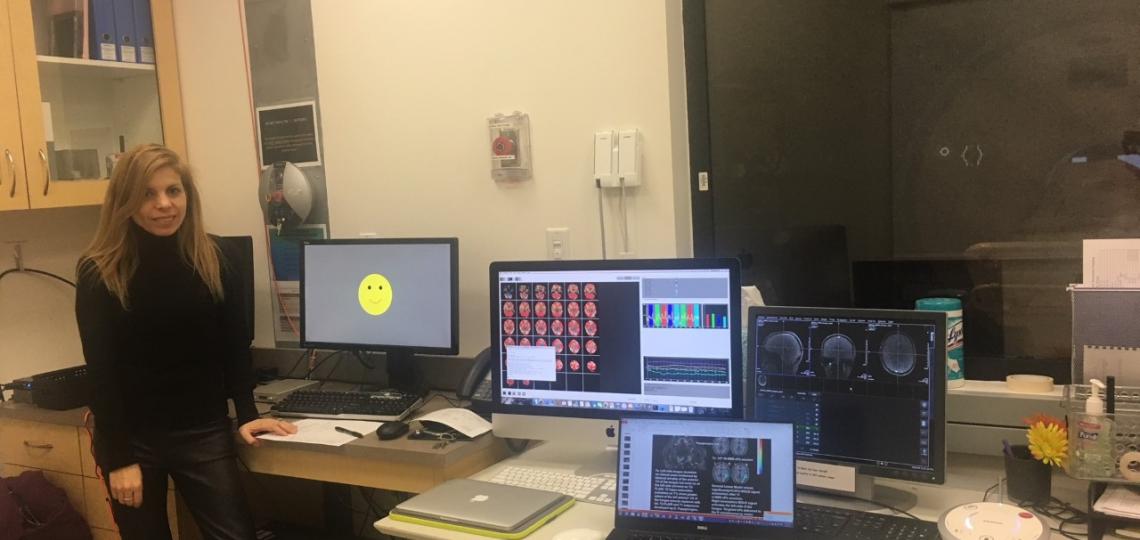
About the Lab
The T. Dorina Papageorgiou - Investigational Targeted Brain Neurotherapeutics Lab has developed a novel, targeted and individualized MRI-compatible brain computer interface (BCI) based on associative learning principles that can induce neuromodulation in patients with neurological sequelae following stroke (commonly a result of a posterior cerebral artery infarct, or a middle cerebral artery infarct), traumatic brain injury or tumor resection.
We call our MRI-BCI, individualized real-time functional MRI neurofeedback (iRTfMRI nFb), which is based on promoting the reorganization of networks by bypassing lesioned pathways and capitalizing on redundant, intact but functionally associated pathways to the injured ones.
This is achieved by modulating the magnitude and spatial extent of Blood-Oxygen-Level-Dependent (BOLD) signal with the goal to recover the brain function, as a result of a neurological insult.
We apply this investigational treatment to patients with impairments of the following cortical systems:
- Retrochiasmal lesions downstream of the optic radiation, which result in cortical blindness.
- Supra- or infra-nuclear injury to the hypoglossal or glossopharyngeal nucleus, which result in upper motor neuron disease (lesions upstream of the medulla oblongata that can impact somatomotor, and somatosensory areas) or lower motor neuron disease (lesions downstream of the medulla oblongata).
- Pain matrix network areas, which result in impaired somatosensory and somatomotor pain matrix network activity as a result of CNS- or PNS-associated pain.
Reorganization is possible by neuromodulating the spatial extent and intensity of the Blood-Oxygen-Level-Dependent (BOLD) signal to a patient's intact cortical area, which takes over in performing the function, as it has been impaired in the primary cortical areas following neurological injury.
This investigational treatment engages associative learning mechanisms that modulate the activity of intact cortical areas with the goal to improve performance in patient populations with neurological sequelae as a result of stroke, traumatic brain injury or tumor resection.
Research Focus Areas
Our goal is to understand how the brain learns, specifically under induced learning conditions. The overall aims of our lab are to study the mechanisms of adaptive plasticity/reorganization of cortical functions using neuroimaging modalities and techniques:
- To examine the learning mechanisms of functional reorganization, such as somatosensory, motor, visual networks in health (adaptive plasticity, the goal of which is to increase performance) and disease (maladaptive plasticity the goal of which is to induce recovery of the lesioned brain function by bypassing injured pathways and capitalizing on intact but functionally associated to those that have sustained injury).
- To induce recovery of function via reorganization of pathways using MRI-brain-computer-interface methods, such as our individualized real-time fMRI neurofeedback (iRTfMRI nFb).
- To combine complementary methods that offer increased temporal resolution, such as MR-compatible electroencephalogram (EEG).
- To use advanced computational methods, such as machine learning (linear and non-linear support vector machines, multilayer perceptrons), deep learning (3D temporal convolutional networks) and dynamic causal modeling (Hidden Markov Models) to decipher the spatiotemporal relationship induced by iRTfMRI nFb and thus, characterize the type of associative learning in a healthy versus a brain characterized by lesioned tissue.







